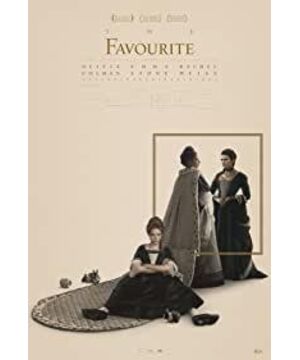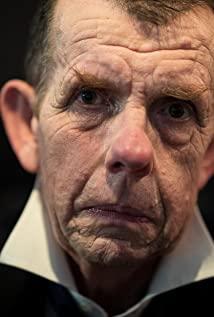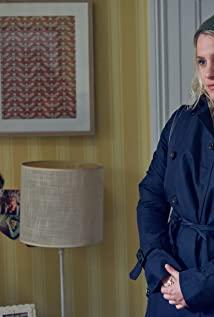A trio of opulent and decadent baroque palaces, like "Barry Lyndon" and "All About Eve," expose the immorality and inhumanity beneath the flamboyant frills of corsets and breeches.
The most impressive thing is the morbidity and absurdity that runs through every chapter of the film. Under a large number of fast panning and wide-angle shots, the palace space has a huge sense of absurdity, filled with gloomy but brightly colored corridors; Upper-crust exaggerated makeup and behavior on the faces of male and female aristocrats (Duck racing + Pelting a naked man with tomatoes) A sense of absurdity; a noble and elegant woman said "Would you like a bite of my new maid before you leave?"; the battle of cabinet political issues is as absurd as a satirical short poem in a degenerate open-air stage play. All try to manipulate others for their own gain. Like Yorgos Lanthimos' previous work, sex, love, friendship, and family bonds exist only between the powers they can bestow on each other; in a distorted vision, the characters maintain a detached relationship with the viewer.
The female is the absolute protagonist in this film, the male character is either the brainless and ignorant Masham, who knows what he means to her after marrying Abigail; the duplicitous playboy Harley who is good at telling lies, they are more or less embellished characters. The role of the characters does not contribute to the development of the plot, and the narrative of this film is also driven by the transformation of the characters' relationships.
The vast majority of the pen and ink is to depict the triangular relationship between Abigail, Queen Anne and Lady Sarah mixed with eroticism and politics. Among them Abigail and Lady Sarah. Like Jane Austen's characters, Abigail's climbing ambitions gradually translate into killing instincts, even in the face of people related to her, amid the tone of court intrigue. Lady Sarah runs the government as the Queen's lover and right-hand man. She is shrewd and powerful, and works with Godolphin to try to persuade the Queen to tax landowners to fund Britain's war against France.
The entire court is shrouded in the aristocratic hysteria depicted in popular film and television literature, and Queen Anne is the most severely affected existence: sometimes violent, sometimes melancholy, sometimes suspicious, sometimes restless, and health problems make her both physical and psychological. Staggering forward, it smelled of despair for a long time, but it was also the support point of this deformed triangle. Queen Anne is in a morbid paradox: her image is withering and aging, but at the same time her body is getting fat and bloated (vomiting and eating).
The performance of the three female protagonists is really wonderful, yes and strict, the psychological activities of the characters are hidden in the raised eyebrows, a side glance or a deep stare. But I personally feel that Queen is the most outstanding character among the three.
What I like about this movie is that although the relationship between the characters is constantly changing in twists and turns, the absolute winner in the true sense has not been revealed. The director brings a surprising pleasure to the audience from a male perspective.
View more about The Favourite reviews











